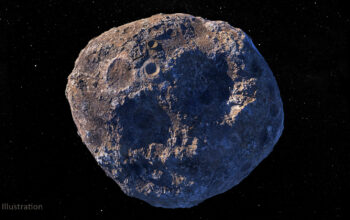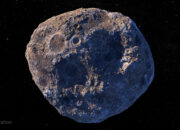The pantheon of scientific achievement is populated by luminaries whose unparalleled intellects and voracious curiosity have transformed our understanding of the universe. Ranking these titans of thought is not merely an academic exercise but a way to appreciate the diverse contributions that have ushered humanity into realms of knowledge previously thought unattainable. The following discourse delves into key figures across varied disciplines, offering insights into their groundbreaking theories, discoveries, and the lasting impact of their work.
At the forefront, we encounter Sir Isaac Newton, a paragon of scientific rigor. His formulation of the laws of motion and universal gravitation established the scaffolding of classical mechanics. Newton’s work, particularly articulated in “Principia Mathematica,” presents a mathematical framework that governs celestial and terrestrial dynamics. His insights, extending beyond physics to optics and calculus, exemplify the interconnectedness of scientific fields. Though his paradigms have been refined, Newton’s legacy remains profoundly etched in the fabric of physical sciences.
Transversing disciplines, we next behold the philosophical undertones in the works of Albert Einstein. His theory of relativity, both special and general, revolutionized our comprehension of space, time, and gravity. It obliterated the Newtonian absolutes, introducing a subtle interplay where mass and energy are interconvertible—embodied in the iconic equation (E = mc^2). Einstein’s intellectual audacity did not reside solely in theoretical postulation; he conceptualized experiments manifesting the consequences of his theories, profoundly influencing modern astrophysics and cosmology.
In the realm of biology, one cannot overlook Charles Darwin, whose theory of evolution by natural selection fundamentally altered our perception of life’s complexity. The publication of “On the Origin of Species” catalyzed a scientific revolution, challenging prevailing notions of creation and instigating debate that reverberates in contemporary genetics and ecology. Darwin’s observations during his voyage aboard the HMS Beagle elucidated a naturalistic mechanism explaining the biodiversity of life, making his contributions indispensable to biological sciences.
Moving to the microscopic world, the contributions of Louis Pasteur heralded a paradigm shift in microbiology and public health. His germ theory of disease revolutionized the understanding of infectious pathogens, leading to groundbreaking developments in sterilization techniques and vaccinations. Pasteur’s meticulous experimentation established causative relationships between microorganisms and disease, thereby transforming medical practice and hygiene, ultimately saving countless lives and invigorating public health initiatives worldwide.
The construct of contemporary physics would be incomplete without the contributions of Niels Bohr, whose model of atomic structure initiated a profound understanding of quantum mechanics. Bohr’s principle of complementarity, which posits that particles exhibit both wave-like and particle-like properties, laid the groundwork for future discoveries in quantum theory. His work not only illuminated atomic behavior but also spurred philosophical inquiries regarding the nature of reality and observation, epitomizing the intricate relationship between science and philosophy.
In the 20th century, the field of psychology burgeoned, thanks to pioneers such as Sigmund Freud. His explorative framework of the unconscious mind and psychoanalytic theory provided unprecedented insights into human behavior and mental processes. Although polarizing, Freud’s theories ignited discussions concerning the interplay between psychology, culture, and emotion, laying the foundational tenets for modern psychotherapy and influencing fields beyond psychology, including literature and art.
The advances in technology owe much to figures like Nikola Tesla, whose innovations in electromagnetism and wireless communication laid the groundwork for modern electrical engineering. Tesla’s visionary inventions, from the alternating current system to the principles underlying radio transmission, have profoundly influenced the infrastructure of contemporary society. His foresight into the potential of electricity and its applications exemplifies the confluence of creativity and scientific inquiry.
The recent strides in genetics, particularly elucidated by figures such as James Watson and Francis Crick, heralded the discovery of the DNA double helix structure. This pivotal moment in molecular biology paved the way for an understanding of heredity, genetic engineering, and biotechnology. Their work catalyzed a plethora of research avenues, directly impacting medicine, agriculture, and ethics, thereby altering the trajectory of life sciences.
While laudable, the pursuit of ranking such diverse minds necessitates an appreciation of their varied contexts and contributions. Each figure brought a unique repository of knowledge, sometimes concurrently venturing into uncharted scientific territories, challenging different philosophical paradigms, and utilizing novel methodologies. The integration of their findings underscores the collaborative nature of scientific progress, unveiling the intricate network of ideas that defines human understanding.
In conclusion, the ranking of the greatest minds in science encompasses not only their singular contributions but also the broader tapestry of knowledge they have collectively woven. The interplay of their discoveries elucidates the excitement of scientific exploration, igniting a passionate pursuit of truth that continues to inspire future generations. As we ponder these extraordinary individuals, one must acknowledge the relentless quest for understanding that transcends time, a quest that remains at the heart of human endeavor and inquiry.












